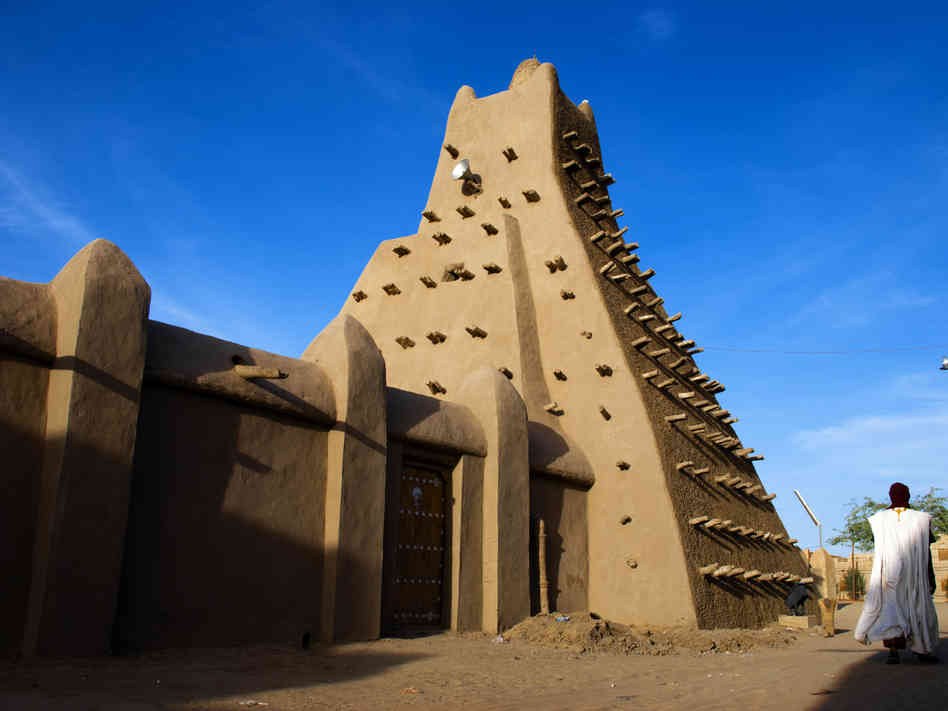The question that many people ask today is: why are there so many students graduating with degrees and without jobs? Why are so few able to translate their academic exploits into something financially beneficial and even fewer into something meaningful? The answer to any question always starts at the origin of the puzzle. The question why were these schools built and what did they hope to achieve is the necessary precursor to understanding why our degrees might or might not matter.
The first schools in any society are agricultural schools. First, communities need to eat, and if the lessons and skills to farm are not passed down through generations, then the institutions must take over and train the young to feed themselves, the younger, and the old.
The agricultural also accompanies the technical and mechanical. There are techniques, of irrigation methods and of storage mechanisms for example, that are more and less efficient. These are honed in through trial and error and the fittest methods survive over time. Machines, at least initially, were designed to help farmers (and not replace them) in the process of bringing food to the dinner table.
Even other necessities like making food, clothing, shelter, and weaponry for self-preservation benefit from schools that instill technical and practical knowledge in students.
Of course all our basic needs must be met before we are drawn to the high life and lights of the university.
When societies have advanced beyond these basic needs–when the mosquitoes are tamed and the floods contained by dams, when the highways link major cities and the roads are built through the muddiest of villages, when the children are fed and none go to sleep with whining bellies, when the poorest residents have roofs over their heads and none are left to beg–when all a nation’s citizenry are stable and well taken care of, then the society can emerge to further iterations of schools, to satiate higher levels of thinking. For when all one’s basic needs are met, the mind is free to take on questions of mighty weight and great substance.
Financed by a wealthy Mandinka lady, the University of Timbuktu also known as the University of Sankore was this mecca of learning in ancient times.
At the world’s first ever university, Sankore, courses in religion, law, literature, geography, history, language, philosophy, medicine, astronomy, surgery, mathematics, physics, philosophy, chemistry, and linguistics were held in outdoor courtyards or private residences. But in addition to these more abstract courses, the university also offered courses in carpentry, farming, fishing, tailoring, shoe making, and construction. Reportedly, students took ten years to obtain the highest degree levels. Upon mastering the curriculum, care for the culture’s values and excellent character were assessed in order to advance to graduation.
At the University of Sankore, which reached enrollment of 25,000 during the twelfth century, the needs of the society were well-aligned to the curriculum for the students.
Today’s question of why degreed students wander aimlessly without employment or security goes back to the fundamentals of why schools are built, what they aim to accomplish, and how they intend to help society. Many students today have little motivation to attend schools besides hoping the education will be a means to the end of a high-paying job. Administrators also perceive their job in monetary form.
Are today’s universities dedicated to integrating the curriculum with the community culture? Is anyone even remotely familiar with what their culture is, or could be, or even in the preservation of culture and its passage through institutions? At these roots, the questions of why is education important escape our contemporary societies. How then, can we place a value on a student’s degree if we do not agree on why the learning is important and how it will help society?

Day after day, students tread to schools that were designed for colonial masters in foreign lands. The purpose of these schools was not to care for African cultural values, not to build character in individuals, and not to strengthen communities. But rather the purpose was to disconnect Africans from their native cultures and to praise individuals who care about their own success more than the success of the collective. To this end, the colonial schools have succeeded. After a generous and free training, medical doctors flee at alarming rates to gain individual material wealth at the expense of entire communities.
Now universities spring up and entice students with the promise of greater financial gain. They train students to work at Barclays or some other corporate multinational. The success of corporatism in education is measured by the number of students who go on to corporate jobs.
Schools that are built for the colonizer or the multinational only need a few graduates to serve their ends–to run the plantation, tend the books, or oversee the low-paid worker bees. Out of the many who are branded with letters of higher learning, those few who are selected to the plantation go on to experience smile-inducing bi-weekly paychecks while the others who are meant to hone the skills of the few are left dispensable, finally to understand that academic degrees are no pillows of comfort. Left with no solid place in the future, they are left broke and with no meaningful skills to advance their society.
For Africa and African communities, these schools have no purpose, only to benefit people outside of Africa. Reclaiming our cultural heritage and regaining order over society can only be accomplished when we have schools with purpose.
It is imperative that African schools reconnect traditional cultures to modern education. How can we all learn how to farm, cook, tailor, fish, build, drum, and dance like the villagers, but also master scholarly subjects that so attract today’s young and are important for intellectual growth? Because these are questions uniquely relevant to life in Africa, they should command utmost relevance in our institutions of higher learning.
Besides this lack of direction and unity between the traditional and the modern, other issues cloud progress in African institutions. For example, if we are being robbed of our gold and cocoa, at plunderous rates below value, why wouldn’t that also translate to our degrees being less valuable than the same degrees across the ocean?
When schools are formed with the best interests of African communities in mind, and not in the interest of colonial masters or multinationals, our leaders would focus less on taking advantage of their citizens and more on fighting on behalf of the country’s best interests.
To achieve progressive results, we must ask serious questions: what are our children learning? Why? In whose language? How will this education help my local community? How will the education help Africa?
Answering these questions will help us develop schools with purpose. In schools with purpose, our children will not become nomadic wanderers with degrees but adults with educations that genuinely benefit society and foster a more humane world.











Who is the Educated African (Ga, Asante, Wolof, Ewe, Frafra, Igbo)? This question will never go away so long as the development of our continent continues to lag behind the development of nations with only a fraction of our resources.
In Ghana today, for example, the highly educated Ga (whatever it means) cannot step into Labadi and speak Ga better than the ‘uneducated’ Ga; he cannot recite Ga greetings let alone the libations for Kpojiemor; nor can he play a simple Kpanlogo rhythm – don’t ask him to sing Jama.
The educated African today, at least, the highly educated African today, is a foreigner unto his own culture – he is Obroni. Hence, if we lag in catching up to other nations like Norway, we ought not seek the answer anywhere else but in this problem – the Obronification of the African! That is what modern African education really is, no doubt.
Nefetiti continues, excruciatingly – no matter how purposefully – in the message of many intellectuals before her. We must fix our education or there is no way forward. You cannot hold something dear, you cannot protect something, and you definitely cannot fight for what you don’t fully understand. The African today has very little understanding of his own culture and his own heritage. And that is the fundamental problem.
I am sure the that the day our nations will be ruled but real people, not just puppets of the CIA, the Mossad and the British Intelligence Agencies, we shall truly be free. When we are free, the way forward for a real education will be sought. It will be thorough, it will be spot-on, it will be exquisite and it will suffice for our needs.
Right now, we just do not have the leaders in place. We have no one in place. And it is a mess.